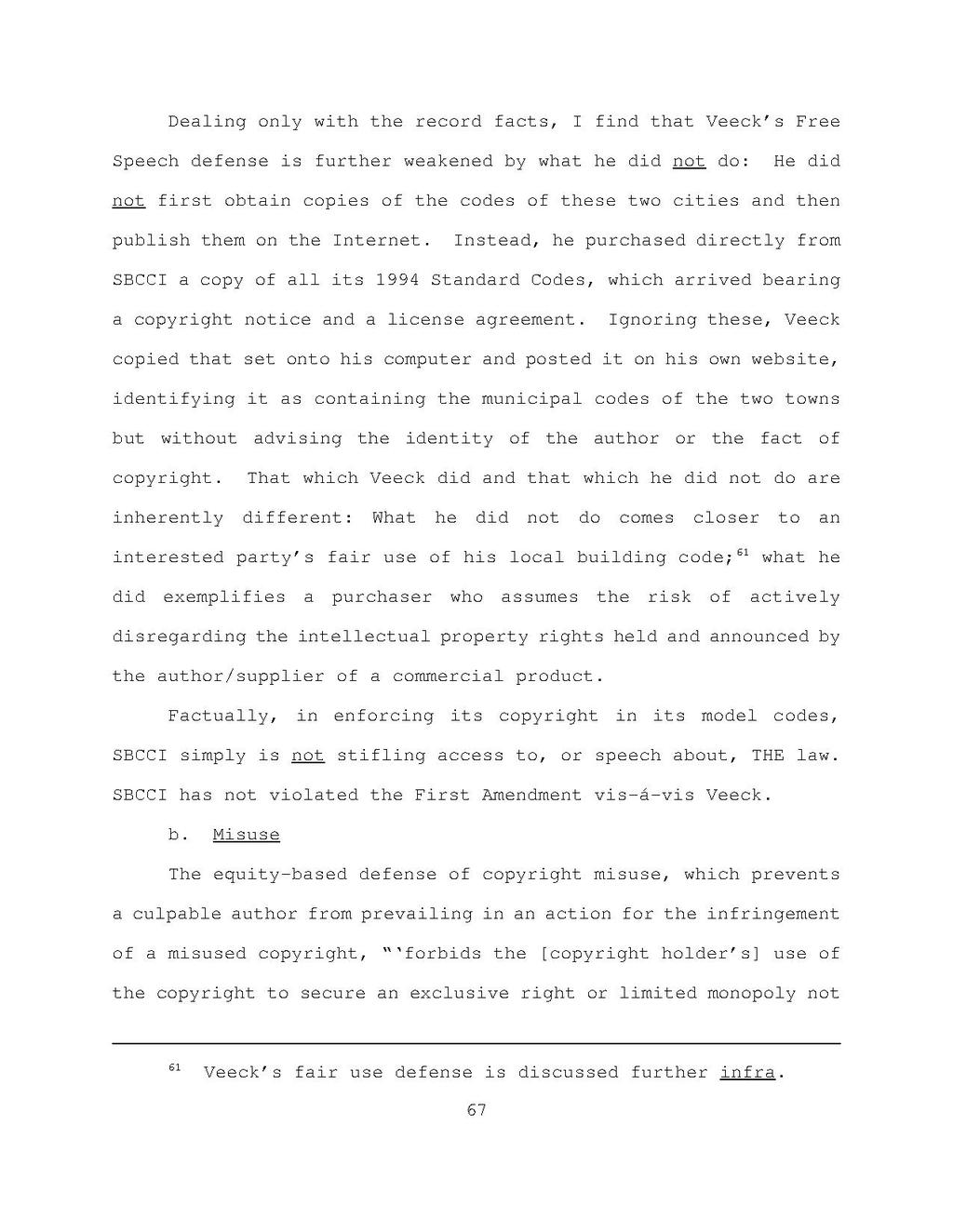Dealing only with the record facts, I find that Veeck's Free Speech defense is further weakened by what he did not do: He did not first obtain copies of the codes of these two cities and then publish them on the Internet. Instead, he purchased directly from SBCCI a copy of all its 1994 Standard Codes, which arrived bearing a copyright notice and a license agreement. Ignoring these, Veeck copied that set onto his computer and posted it on his own website, identifying it as containing the municipal codes of the two towns but without advising the identity of the author or the fact of copyright. That which Veeck did and that which he did not do are inherently different: What he did not do comes closer to an interested party's fair use of his local building code;[1] what he did exemplifies a purchaser who assumes the risk of actively disregarding the intellectual property rights held and announced by the author/supplier of a commercial product. Factually, in enforcing its copyright in its model codes, SBCCI simply is not stifling access to, or speech about, THE law. SBCCI has not violated the First Amendment vis-?-vis Veeck.
b. Misuse
The equity-based defense of copyright misuse, which prevents a culpable author from prevailing in an action for the infringement of a misused copyright, "'forbids the [copyright holder's] use of the copyright to secure an exclusive right or limited monopoly not
- ↑ Veeck's fair use defense is discussed further infra.
67
